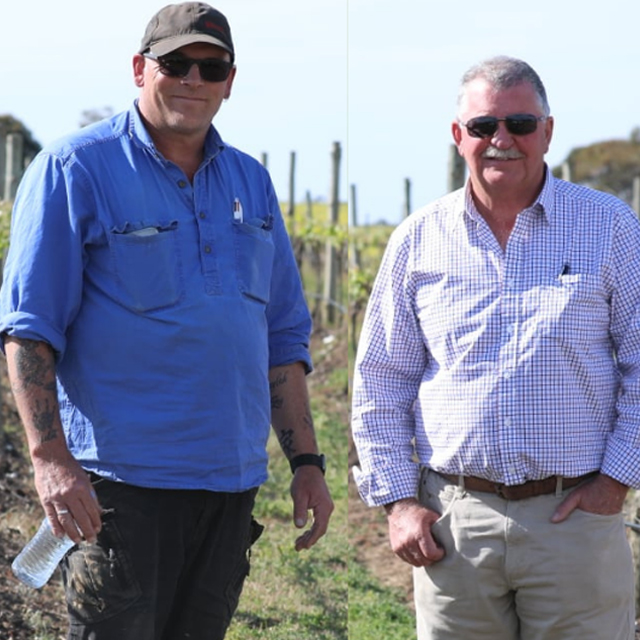1. Tell us about your experience in grape growing?
After a career in the finance sector in Sydney, I returned to my horticultural roots in SA and planted my first vineyard in 1998. Since then, I have planted or renovated more than 300 hectares and overseen the management of 6 different vineyards simultaneously with a total area of 480 hectares in 4 central South Australian wine regions comprising Adelaide Hills, Currency Creek, Langhorne Creek and McLaren Vale.
2. What prompted you to want to be involved in the EcoVineyards project?
Our family company, Watkins Family Wine, is always seeking ways to reduce our carbon footprint as well as reducing the use of chemicals on our vineyards. With expert input and some thought and planning, we can let time and nature help us to improve natural pest control methods by restoring the habitat that will encourage the multiplication of predatorial species.
Sustainable viticulture is a principle we are championing under our ‘Watkins’ brand of wines. The Watkins brand uses estate grown grapes from our vineyard holdings comprising 145ha across both the Adelaide Hills Wine Region and Langhorne Creek Wine Region.
3. What do you hope to achieve from your involvement in the EcoVineyards project?
Reduced chemical application, improved staff safety, visual amenity and general biodiversity improvement, which will all also assist fruit quality and hopefully this will even be aligned with reduced production costs.
4. Have you tried to increase biodiversity on your property before undertaking this project? If so, how?
Mostly with the application of organic manures on the vine areas, the introduction of sheep for winter weed control and we have encouraged the establishment of low competition mid-row perennial native plants such as Prostrate Saltbush.
5. Why do you think it is so important for growers to try and build natural resilience on their property?
Natural resilience creates a buffer against pests and diseases which are encouraged by extreme conditions from time to time and which can quickly take hold in a mono-cultural production system.
6. Looking to the future, what do you see as a new ‘normal’ for grape growers on their properties?
Sustainable agriculture meaning less interference with natural systems is going to create benefits moving forward – biodiversity will contribute natural solutions to man-made problems which have continued to increase as a result of our past production systems.

